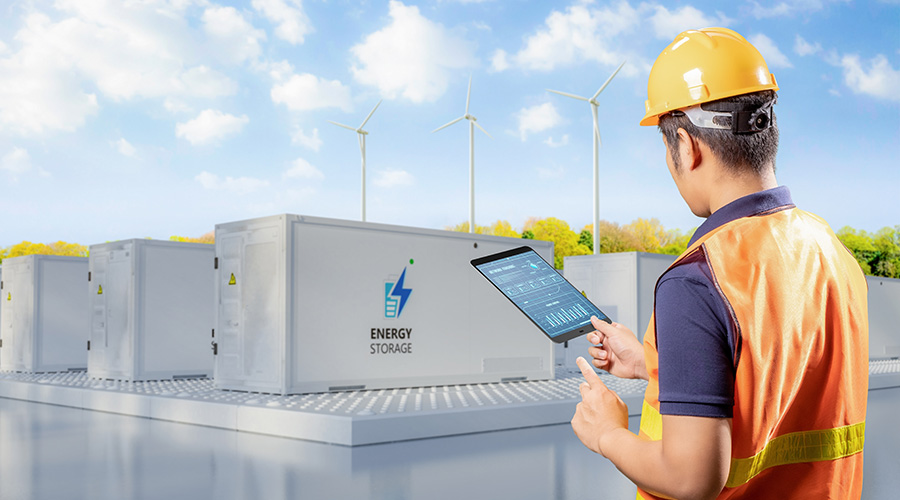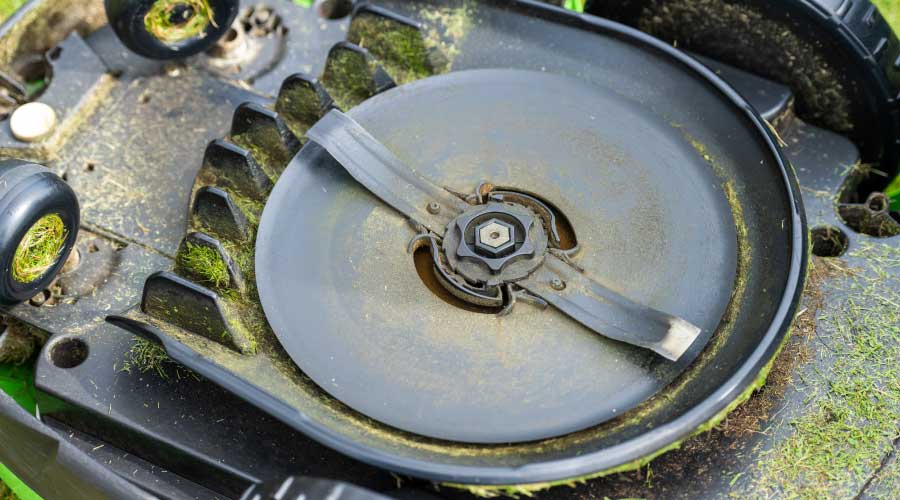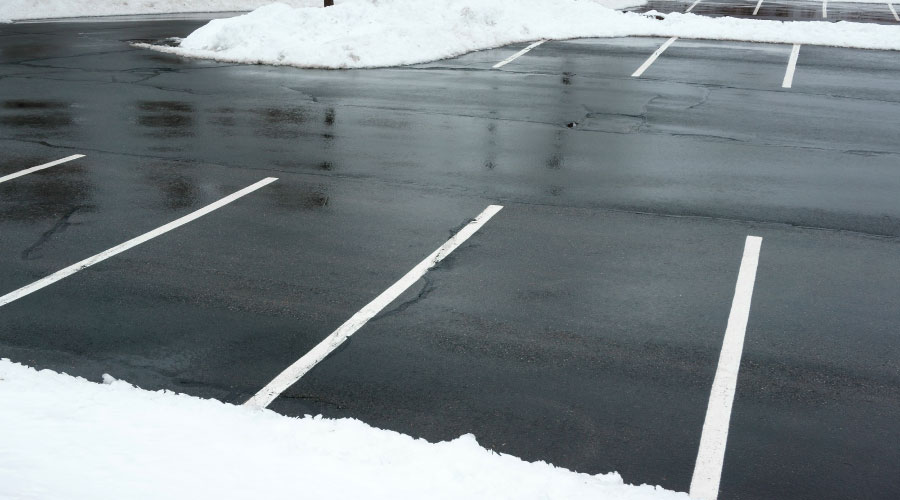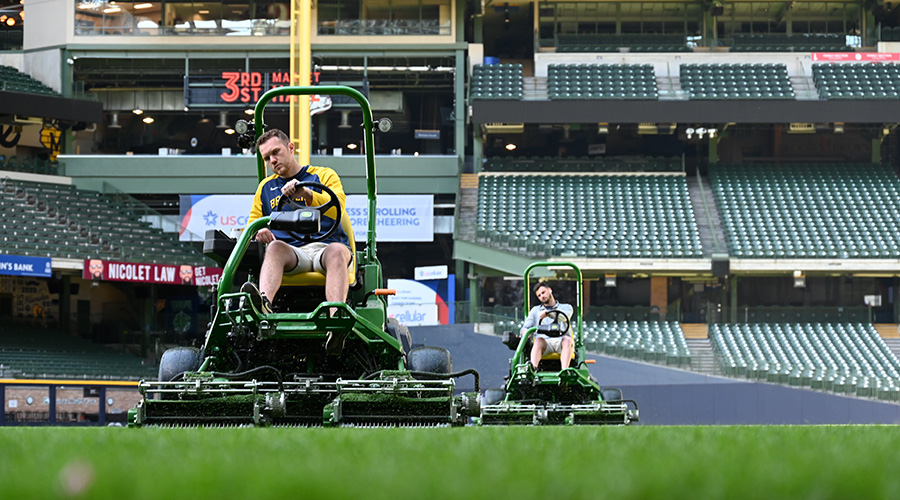Equipment Rental: Grounds for Success
Questions and considerations for managers in the market to rent equipment for larger-than-normal projects
Grounds managers and their crews often must undertake projects outside of their routine lawn and landscape maintenance tasks. Light construction, carpentry, pavement removal and installation, retaining-wall construction, tree and shrub planting, fence building, lawn renovations, brush clearing, and installing irrigation systems are just a few of the more common site-improvement projects that grounds crews commonly undertake.
Most of these projects require that managers rent special equipment crews can use to execute the work in a safe, timely, and cost-effective manner. Subcontracting such work is one option for grounds managers to get the work done, but if staff is available and capable, managers can rent almost any type of equipment needed.
Among the equipment options for managers to consider in such cases are full-size backhoes, compact loaders, mini-excavators, chain saws, stump grinders, brush chippers, aerators, slit seeders, post-hole augers, cranes, trenchers, mulch blowers, tillers, sod cutters and leaf vacuums.
Understanding Options
Renting equipment can be a smart way to manage the budget. Much of the equipment needed for specialty projects is costly, and managers generally cannot justify purchasing such equipment for just occasional use. The actual purchase price is only one component of the equipment’s total cost. Managers also must consider maintenance of the equipment, as well as its storage because a $20,000 mini-excavator with attachments probably should not sit outside all year long.
Even managers considering the purchase of a piece of equipment should consider renting various models before buying. This is a good way to test the equipment to ensure it actually will work for the situation.
Many dealers will loan equipment for technicians to test drive for a short time before purchasing, but renting for a month or two might provide a better opportunity to measure the equipment’s performance and durability in a variety of situations.
A variety of vender types rent light-construction equipment, including local, independent rental companies that rent everything from tables and chairs to stump grinders and lawn aerators. Also, local and large, national rental stores specialize in all types of light- and heavy-construction equipment.
And managers should not forget equipment dealers, who also might have rentals available. Managers might be able to rent a skid steer, tree spade, mower or mini-excavator directly from the dealer.
Matching Needs
The most important goal to consider in renting equipment is that the process produces the correct equipment for the job. Will the rental managers help determine the type of equipment needed? Do they have the experience to give advice? An experienced rental manager will quiz customers to make sure the requested equipment will do the job.
For example, a manager might think he or she needs a certain size or type of skid loader, but the rental manager might ask a few questions that will determine that another type or size would be better-suited for the job and the operator. They should know their equipment, so if managers know the scope of the project and the skill of operators, the rental manager should be able to identify the perfect equipment match.
Even in cases where managers are frequent customers with seemingly routine projects, they should always tell the rental staff about the project. The staff might have helpful advice and new equipment that managers were not aware of.
The second most important question for the rental company is, “What are the terms of the rental?” For example, find out if the rental companies offer options for rental periods. Do they rent for an hour, two hours, a half day, weekly, or monthly? Are there minimum rental periods, and do these terms vary by piece of equipment? Managers might be able to rent a chain saw by the hour but a skid steer only by the day.
At this point, also double-check store hours to determine what time workers can pick up the equipment and when it must be returned. If the crew plans to start with the equipment at 7 a.m. but the store doesn’t open until 8 a.m., the manager will need to adjust the project schedule, rent for an extra day, or find a rental store with more convenient hours.
Also, ask about rental fees ahead of time, and don’t assume the hourly fee translates into a daily or weekly rate. Usually, the longer the customer keeps the equipment, the more favorable the rate.
Payment Considerations
The next issue involves payment options. Most rental stores with lawn and garden equipment are set up to rent to walk-in customers. But some rental companies do not participate in cash rentals and are not set up to accept cash or credit-card payments. They only rent to businesses, contractors and organizations that have credit accounts.
If this is the case, the manager will likely need to fill out a credit application that includes basic company information, three trade references, banking information, and a signature of authorization. Rental companies can set up accounts instantly, or it might take several days to a week, depending on the rental company and the organization’s policies.
As customers, managers also should inquire about any fees, such as clean-up or fuel charges, in addition to the basic rental fees. Find out if crews must bring the equipment back with a full tank of fuel. If the rental company charges for fuel, check the price per gallon charged.
Next, managers must consider the condition of the equipment the rental company offers. Does it take good care of the equipment? If a piece of equipment is not in good and safe operating condition and breaks down or is difficult to operate, there might be little or no benefit to renting; subcontracting the work might be a better option. While talking to the rental manager, look around to see if equipment is well-maintained. This means it should be clean and have a “Ready To Rent” tag on it. If the rental store is unorganized and messy, chances are the equipment will be the same way.
When reserving equipment for rent, the rule of thumb is, the earlier the reservation is made, the greater the chance of getting the desired piece of equipment when crews will need it. April, May and October are the busiest months for lawn and garden equipment, so plan ahead for rentals in those months. Make the reservation at least three days ahead of time, and don’t forget to call before pickup to make sure the equipment is ready to go.
Another important point to remember is rental companies do not control the weather. If it is raining on the day crews are supposed to pick up rental equipment, be sure to call the rental company early in the day to cancel the reservation. Do not assume the company knows workers can’t use it. Some rental companies will charge renters who do not call and cancel.
When renting large equipment that must be towed back to the job site, be sure to ask about the type of trailer the equipment is on and the size of hitch needed. Also, find out the size of the truck needed to tow the equipment and trailer. Are other accessories required, such as a light hookup?
Also, most rental companies offer delivery but charge an extra fee. This fee usually is based on the distance from their location to the job site, the size of the equipment, and the required type of delivery vehicle — pickup truck, semi truck or something in between.
Maintenance Issues
What if the rental equipment breaks down while in use? Does the rental company send out a mechanic, or do in-house crews have to take it back to the store? Obviously, it is to the renter’s advantage to have a mechanic come to the job site for the repairs.
Prior to rental, managers should find out how quickly repairs are made. The answer will depend on the type of repair, but managers need to know about response time. Will it take days or minutes to send someone out?
Some rental companies have a rental guarantee stipulating that if the machine is not repaired or replaced within four hours, that day’s rent is free. Also, some rental companies offer a 24-hour, seven-day-a-week emergency service in case crews will use the equipment after business hours.
Generally, the rental company takes care of routine maintenance and breakdowns. If the damage occurs because of operator error or neglect, the renter might be liable. If the rental agent does not offer this service verbally, managers should inquire about rental insurance plans, which vary greatly among companies.
One national company offers a plan that costs an additional 14 percent of the rental fee and covers the first $500 of damage, no questions asked. The balance is split evenly with the customer.
Training Matters
Finally, managers must ask about operator training and safety instructions. Can rental managers take the time to show operators the machine’s features and the proper and safe operating procedures? Rental agents should ask if the operators have used the particular equipment before. If not, they should spend the necessary time reviewing operating procedures and safety requirements with the operator.
They also should discuss all safety equipment recommended for use with that equipment. On larger, more complicated equipment, they might need to spend 30-40 minutes training the operator. Less-complicated equipment might require only five-ten minutes to review operating procedures.
When renting from a company for the first time, it will be worth a manager’s time to read the fine print on the back of the rental agreement. It might take about 45 minutes, but this is where all of the important legal information is — who is responsible and liable for everything from understanding operating procedures and safety, to theft, loss, and returning equipment dirty.
The selection process might take some time and effort, but once a manager finds a company that has friendly, knowledgeable personnel, good equipment, and competitive rates, the rental experience will be very productive for the department and the organization.
Related Topics:











